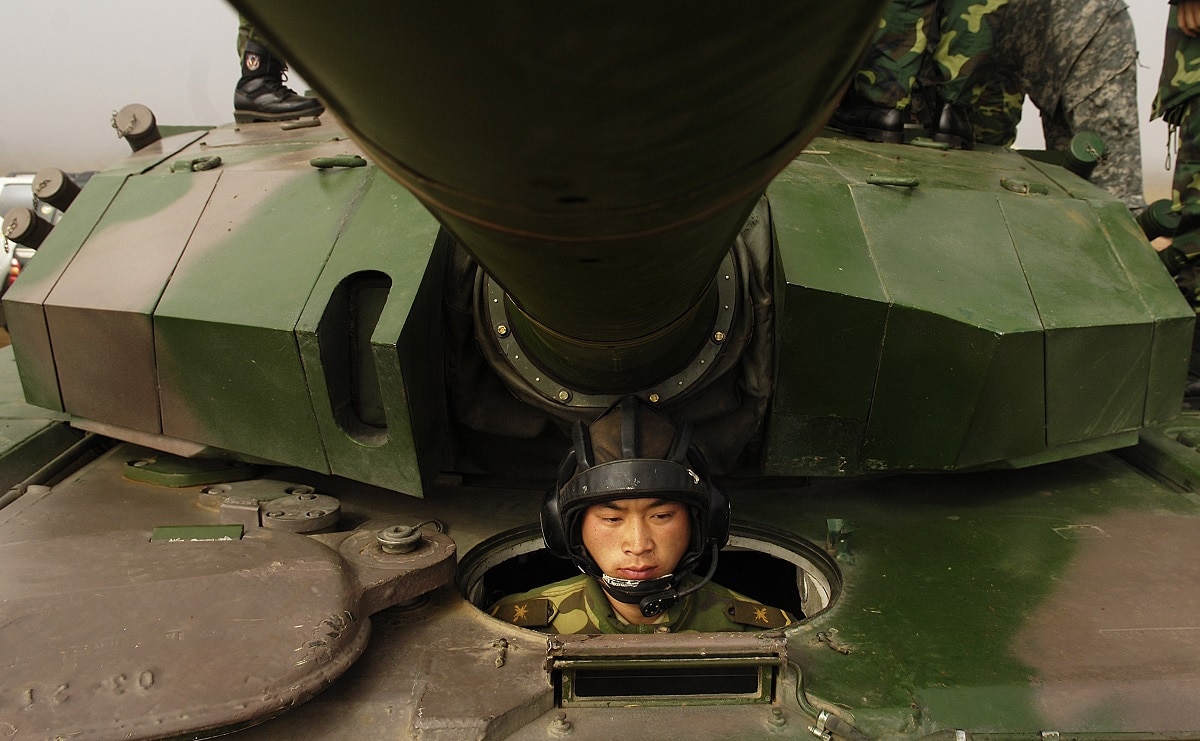Russia Backs China over Taiwan: Preceding and following U.S. House of Representatives Speaker Nancy Pelosi’s August 2 arrival in the Taiwanese capital of Taipei, Russia consistently expressed support for China’s increasingly bellicose rhetoric and actions in response to her visit.
Russian Rhetoric Ahead of Pelosi’s Visit
Even when Speaker Pelosi’s visit was yet-unconfirmed, Russia’s support for China’s position on the issue was unmistakable. While the United States and Russia both have a diplomatic relationship with the People’s Republic of China in Beijing and maintain unofficial ties with Taiwan’s Republic of China government in Taipei, Russia is far less ambiguous in its recognition of Taiwan and mainland China as one entity. The U.S., on the other hand, maintains the intentionally ambiguous ability to come to the aid of democratic Taiwan if it is attacked militarily by China, and is required by the Taiwan Relations Act to provide the territory with arms.
Taiwan sees itself as sovereign, while Beijing maintains the island is part of China and will be taken back by force if necessary.
Relations between China and Russia have been warming for years. However, in the immediate run-up to Russia’s 2022 invasion of Ukraine, both parties made public demonstrations of support for one another. On the opening day of the 2022 Beijing Winter Olympics, Russian President Vladimir Putin and Chinese President Xi Jinping declared the formation of a partnership with “no limits,” in which cooperation between their two countries would not be limited in any form.
Since then, China’s Xi has expressed support for his Russian counterpart’s invasion, labeling it “legitimate,” despite China’s hesitation to stick its neck out too far to support Russia in evading sanctions or other elements of much of the world’s ire for the invasion. For its part in condemning and sanctioning Russia’s invasion, Russia included Taiwan on its list of “unfriendly states and territories.”
Russia Backs China in August Taiwan Confrontation
Russian support for China in its threats surrounding Pelosi’s arrival in Taiwan has been clear and unrestrained. Both Kremlin Press Secretary Dmitry Peskov and Foreign Ministry Spokeswoman Maria Zakharova condemned Pelosi’s visit as a provocation. Russia’s Foreign Ministry also warned the U.S. not to “undermine” regional stability and expressed its belief that the cross-strait relationship was a “purely internal” matter of China, and that Beijing is well within its right to push back against Pelosi’s visit as a result.
This sentiment was echoed across the Russian government – as confrontational stances with the West often are – as Federation Council Foreign Affairs Committee Chairman Konstantin Kosachev (and member of the ruling United Russia Party) similarly labeled Pelosi’s visit as a provocation.
Leonid Slutsky, the head of the “opposition” Liberal Democratic Party and the Chairman of the State Duma’s International Affairs Committee, also condemned the visit as a provocation, a signal of consensus within Russia’s fractious authoritarian power structure. Russian state and state-friendly media have also taken a very supportive stance towards Beijing’s position following Speaker Pelosi’s arrival in Taipei, also condemning her visit as a provocation and overreach by the United States.
As the crisis develops further and planned Chinese live-fire exercises around Taiwan – including within its territorial waters – take place, Russia’s vocal support for China’s version of events is unlikely to disappear. Both Russia and China have an incentive to preserve the other’s support for their own aggressive projects, which is all the more visible in Russia’s full-throated endorsement of China regarding Pelosi’s visit.
Wesley Culp is a Research Fellow at the Center for the Study of the Presidency and Congress. He regularly writes on Russian and Eurasian leadership and national security topics and has been published in The Hill as well as in the Diplomatic Courier. He can be found on Twitter @WesleyJCulp.

